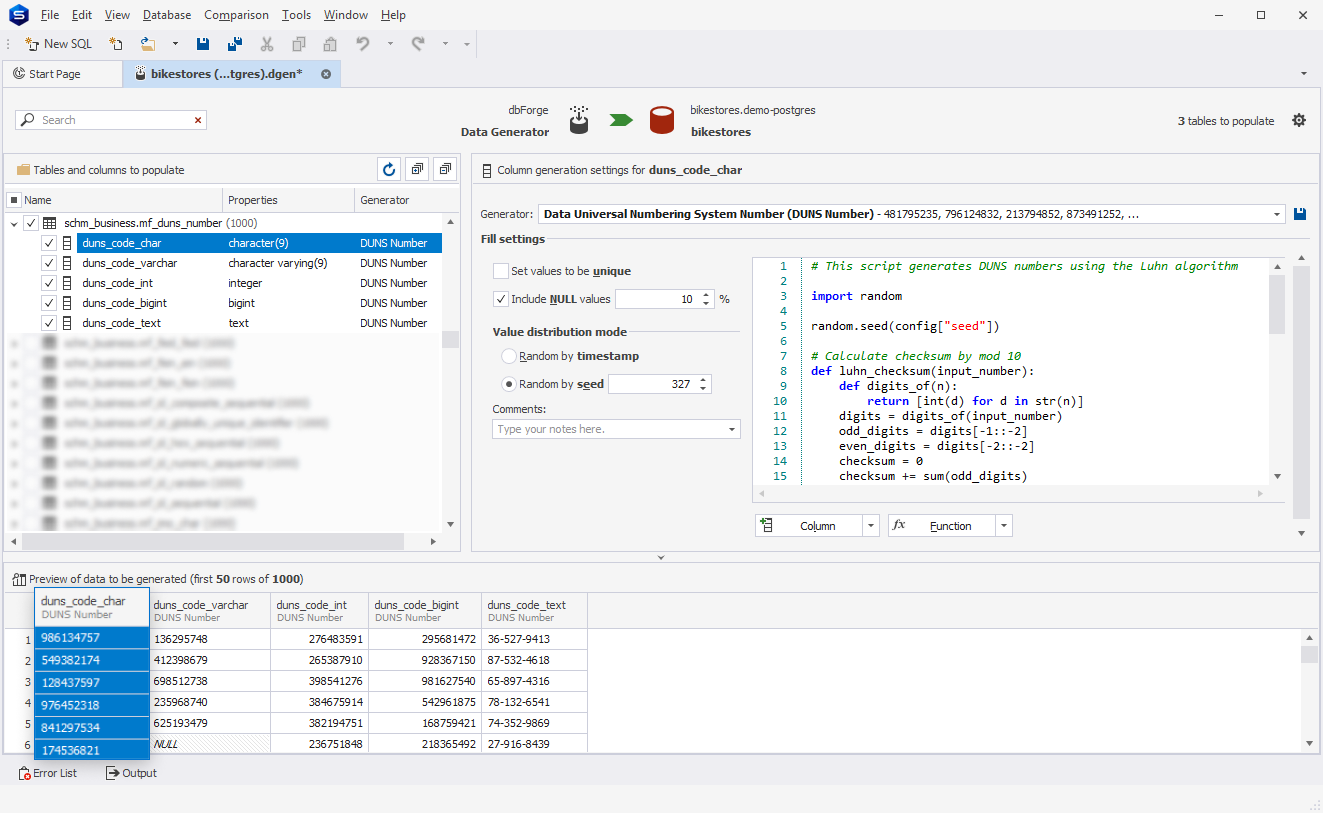Data Universal Numbering System Number (DUNS Number) generator
The Data Universal Numbering System Number (DUNS Number) generator creates unique, nine-digit numeric identifiers to simulate business data. These numbers adhere to the Data Universal Numbering System format used globally for business identification. They are critical for testing and development in systems involving business data, supplier registries, or government compliance.
Generator properties
The table provides key details about the generator, including the short name, example of the generated data, the supported data types, and whether it is specific to a particular country.
| Short name | Example of generated data | Data type matching | Country-specific |
|---|---|---|---|
| DUNS Number | 481795235, 796124832, … 48-179-5235, 79-612-4832, … |
character varying character bigint integer text |
Default |
Matching rules
The generator can be assigned to a column that matches any of the following rules:
- The column name is ‘DUNS’, regardless of the table name.
- The column name starts with ‘DUNS’ and ends with ‘code’, with any or no characters in between, regardless of the table name.
Configure additional options
The generator produces data based on an IronPython script. Since it is built on the Python generator, see Python generator to customize settings and understand the correct usage of syntax.
Preview of the column data generated by the Data Universal Numbering System Number (DUNS Number) generator
